cooperation
posts displayed by tag

Extending ICT Alliance digitalization cooperation to South-East Asia
Dec 14 2016Extending ICT Alliance digitalization cooperation to South-East Asia cooperation seminar, hosted by MDEC in Malaysia including Magic organized Entrepreneurship conference.
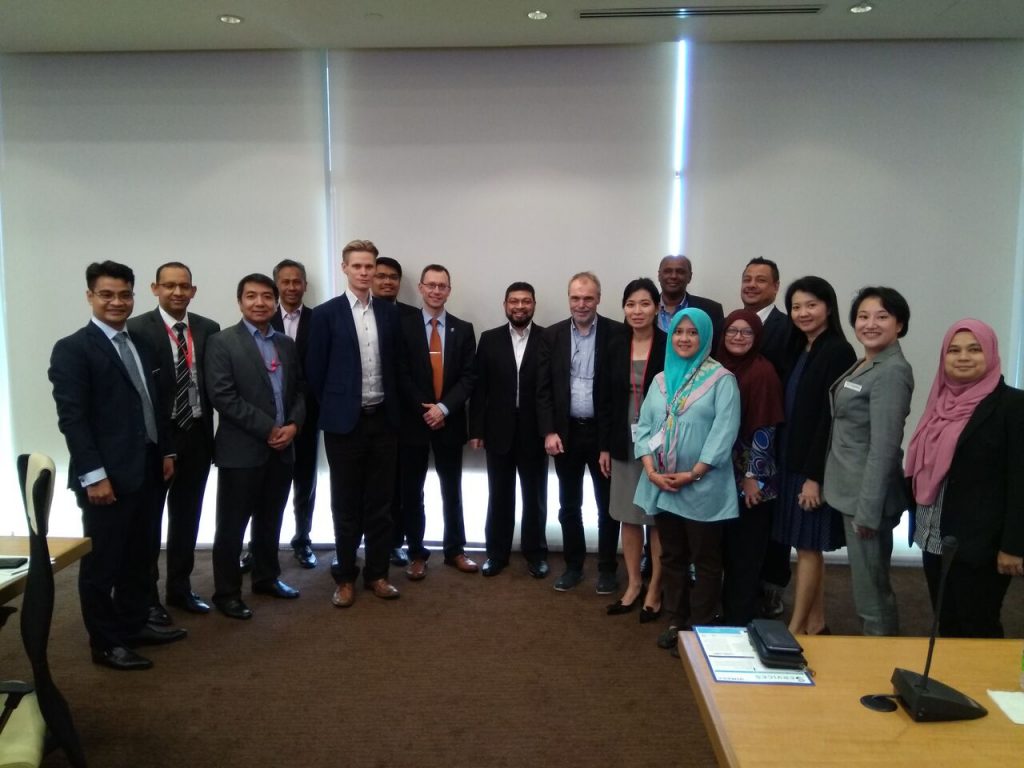



ICT Alliance facilitates activities at state, province and city level RDI cooperation
Jul 09 2016The state level cooperation frameworks and meetings, such as the China-Finland S&T Joint Committee meetings, are important to be involved in for long term planning and for defining joint focus areas. For the medium to short term cooperation and actual implementations the role of province and city level cooperation is growing as the pilot projects often take place at the province and city or district level.
The Tekes-MOST joint call during spring 2016, involving Zhejiang and Jiangsu specific calls, is an example of active province level collaboration. The ICT Alliance together with active university partners, University of Oulu and Aalto, facilitated the creation of “Smart IoT Consortium” including collection of proposals for local demonstrators at the China side. This was followed by a workshop in Shanghai in April to develop and finalize proposals.
ICT Alliance participated city focused cooperation events such as visit of the delegation of Vice Mayor Biao Chen, Shenzhen Municipal Government Office, in June at TEM where
topics involved bioeconomy, cleantech and digitalization (BCD) as well as industrial design where the cooperation is already ongoing.
The city level cooperation of Espoo and Shanghai has continued and is again on the ICT Alliance activities agenda also for 2016 as several events are being planned in Shanghai (e.g. SLUSH China and Nordic Design and Innovation Week 2016).
Developing Industry – Academia consortia for pilots and testbeds in China and in Finland
Smart IoT, 5 G and testbeds consortium: To respond to the Tekes- MOST call and other forthcoming opportunities a Consortium on Global Business in Smart IoT was initiated during spring 2016 facilitated by the ICT Alliance cooperation, with University of Oulu leading with Hilla Program as the affiliated activity for accelerating industry cooperation. This consortia collected six potential proposals from China that were further developed for the Expression of Interest call at the end of 2017:
- Smart City
- Smart Home Air
- Smart Water
- Cloud-based Intelligent Water Treating and Dispatching System
- Smart City Design
- Smart Education
The discussion on developing Smart City (e.g. MaaS) and 5 G & IoT pilots in Finland for Chinese companies, leveraging the testbeds in Oulu and possibly Tampere, has become active during spring 2016. The 5th Gear program and Hilla will be a focal point in the China-Finland RDI collaboration leveraging testbeds and piloting in real-life environments.
The main topics in the April 2016 visit to China and the ICT Alliance workshop include Smart IoT / Smart City, learning solutions, including the initial planning of EduCloud and Smart Learning Services pilots, intelligent senior services, health and rehabilitation solutions, built around the DigiRehab consortium.
The April visit was extended to Hong Kong and Singapore to cover the market opportunities in these areas in addition to China as this broader scope was clearly indicated to be in the companies business interests.
Learning solutions EduCloud and School-as-a-Service:
One of the focus areas in ICT Alliance since 2013 has been new digital learning solutions. The work has been done in cooperation with the Sino-Finnish Learning Garden framework initiated by Ministry of Education and Culture, Finland, and Ministry of Education, China.
In 2015 Digile initiated the Learning Evolution Agenda (LEA) to help creation of comprehensive solutions from Finland for joint Sino-Finnish offerings to the global markets with major Chinese ICT companies.
In April 2016 it was suggested to focus ICT Alliance on currently active Tekes programs and have education transferred to a company driven mode. Consequently, in the April – June period we have worked actively towards this aim with EduCloud Alliance (ECA) and LifeLearn company established to internationally leverage ECA results by creating a scalable delivery channel and with the Finnish education accelerator and xEdu. Preparations for a Sino-Finnish EduCloud project for piloting, testing and adapting the Finnish solutions in China have been started involving the above partners and the key education universities in China and Finland. Cooperation is proceeding in developing and piloting School-as-a-Service (SaaS) that combines digital learning solutions with configurable physical environments in a new way with Aalto University and City of Espoo and Tongji University and City of Shanghai as the key partners involved. The SaaS approach would involve a variety of companies ranging from digital learning to access solutions being an example for new services and service operators in a smart city.
Digital rehabilitation and health games: International consortia of research institutes and companies are being developed in senior services and health and wellbeing. Currently active area in cooperation development is digitalization in rehabilitation, including health and rehabilitation games. The solutions are of high demand in China as rehabilitation has been largely underserved area in health. Same applies elsewhere in Asia and the active partners are coming from Singapore, Japan and Korea. This matches well the FinlandCare growth program of Finpro.
Design and digitalization: Both Finnish and Chinese companies are increasingly looking to cooperate in combining design and digitalization in Asia – but also in Finland with Chinese companies providing many of the technologies to be embedded. During spring 2016 discussions with companies have been initiated in ICT Alliance context with target areas including smart home, smart city (e.g. vehicles), digital health and wellbeing. In the ICT Alliance, the next step is to investigate the possibility to organize a consortium involving both Finnish and Chinese partners. To identify concrete business cases a group of design companies have confirmed their interest in joining the events in China during October – November 2016 and one-on-on meetings for them are also to be facilitated.
Service packages for companies: Supporting the development of “service packages” for Chinese companies interested in European markets ICT Alliance has also been involved in the discussion for developing Finland as “International IPR Hub” for which a proposal is being prepared by EK and IPR University Center. The opportunity is timely as the European common patent system is now renewed giving Finland a better position to act as a hub for Asian companies interested in entering European markets. In the preparation Chinese companies have been identified as the first prospective group of customers. For the Finnish companies in China one of the services of high demand continues to be Cloud services in China pilots. This is to be concretely piloted starting with education companies (planned for end of 2016-beginning of 2017) and based on the experiences extended to other areas.

Shenzhen Vice Mayor Biao Chen, Shenzhen Municipal Government Office, and High Tech Fair Delegation visit at TEM
Jun 30 2016Shenzhen Vice Mayor Biao Chen, Shenzhen Municipal Government Office, and High Tech Fair Delegation visit at TEM on June 30.
The topics involved bioeconomy, cleantech and digitalization (BCD) as well as industrial design where the cooperation is already ongoing. Finpro and presented cleantech and bioeconmy, Tekes presented new business ecosystems in smart grids, Mobility as a Service MaaS, and personal health data management (e.g. My Data). ICT Alliance represented the digitalization area, facilitating joint research aiming to address the needs in China but also together in the 3rd markets. The future focus areas of cooperation involve those represented by Tekes and Finpro. For ICT Alliance cooperation Shenzhen has also strong interest in combing digitalization and design that can leverage the complementary Finnish and Chinese strengths (e.g. smart homes, smart spaces even smart furniture where business cooperation is emerging).

Team Finland China Day on May 18
May 18 2016What’s up China? Team Finland China Day at Scandic Park, Helsinki
Meeting with companies and institutions involved in ICT Alliance facilitated cooperation, including environment (indoor air), smart spaces, health, rehabilitation, and education.

Sino-Finnish Education Innovation Center launch a new workshop on May 16
May 16 2016Sino-Finnish Education Innovation Center launch workshop hosted by OKM as part of the Sino-Finnish Learning Garden cooperation. University of Helsinki and Beijing Normal University (BNU) signed the agreement to establish The Sino-Finnish Joint Learning Innovation Institute that will consist of five thematic centers, one of which is company cooperation between Chinese and Finnish companies in EduTech.
ICT Alliance is involved developing cooperation with BNU and Central China Normal University (CCNU) at Wuhan. With CCNU as a central actor for China’s e-learning and education cloud activities the proposal on Sino-Finnish EduCloud is being prepared. Finnish company partners involve LifeLearn, xEdu and several affiliated companies.

Nordic Design and Innovation Week 2015 in Shanghai
Nov 03 2015
FinCEAL Plus in cooperation with China-Finland Strategic ICT Alliance organize this high-level seminar in the context of the Nordic Design and Innovation Week, NDIW2015. The seminar is aligned with the CleanConnect Congress in Shanghai for Chinese and global cleantech companies and institutes to meet potential investors and customers. This seminar and affiliated meetings are targeted to universities, research institutes, companies, public sector experts and decisions makers at cities and government agencies working on cleantech, environment and related urban design issues. The aim is to provide opportunities for researchers and business and public sector representatives to get into detailed discussions on further cooperation.
Seminar program can be downloaded from here:
Seminar speaker biography can be downloaded from here:

China – Finland Strategic ICT Alliance International Workshop Week 21 – 24 April 2015 will be held in Shanghai
Mar 31 201521/04/2015 – 24/04/2015
China – Finland Strategic ICT Alliance International Workshop Week 21 – 24 April 2015, Shanghai

The China – Finland Strategic ICT Alliance International Workshop Week 21 – 24 April has been organized by the China-Finland Strategic ICT Alliance.
The objective of the Workshop week is to review the current joint projects and to plan new cooperation initiatives and project proposals in areas of joint interest. Suggested topics to be covered throughout the week relate to ongoing or new research programs and areas identified for potential cooperation. New themes may be proposed by prospective theme leads.
- Future Networks (5G)
- Intelligent Sensing & Services
- Navigation, Positioning and Geospatial Services, Intelligent Traffic and Urban Mobility, Urban Sensing
- Sustainable Urban Development
- Health, Wellbeing & Senior Services, Smart Home – Smart Life
- Trust, Security and Privacy
- Cloud Services – setting up services for pre-commercial pilots
- Industrial Internet
For more information please contact the organizers:
DIGILE – the Finnish Strategic Center for Science, Technology, and Innovation in Internet Economy, and WiCO – The Shanghai Research Center for Wireless Communications, who are the coordinators at Finland and China side as appointed by Tekes and MOST.
ISeeLife! Lab –Intelligent Services Embedded in Everyday Life – is a new open platform launched at the end of 2014 at the Sino-Finnish Centre, Tongji, for collaborative research, education and innovation activities. Planned areas for 2015 include health, wellbeing and senior services, smart spaces (personal space – home –school – workspace), and “life centric” design of services and spaces in urban environments.
(*More details for workshop time, location, traffic information, please refer to the programme overview in the attachments below.)
Attachment


“China-Finland Co-Creating the Future” Week – Solutions for the Era of Internet Economy
Aug 31 20141/9/2014 – 5/9/2014
“China-Finland Co-Creating the Future” Week – Solutions for the Era of Internet Economy
September 1 – 5, 2014 Espoo and Helsinki, Finland
This week of the 7th International China-Finland ICT Alliance Workshop and related Forums has been organized by the China-Finland Strategic ICT Alliance: DIGILE – The Finnish Strategic Center for Science, Technology and Innovation in Internet Economy, and WiCo – The Shanghai Research Center for Wireless Communications, as appointed coordinators by Tekes and MOST, in cooperation with the Ministry of Employment and the Economy, the Ministry of Education and Culture, the Academy of Finland, and participating universities and companies. The topics cover many of the current focus areas of the ICT Alliance facilitated R&D&I cooperation on digital technologies and Internet based services and business. In these areas a number of joint projects, pilots and other forms of cooperation are already ongoing while new initiatives are also being prepared. The aim is to share experiences and results of the ongoing projects as well as jointly plan new activities with the invited experts from academia, industry and public sector.
Attachments

More information:
Matti Hämäläinen, matti.hamalainen@digile.fi
Jani Kaarlejärvi, jani.kaarlejarvi@digile.fi

ISSUE-TM Research Forum – Intelligent traffic and urban mobility
Jul 08 2014The International Research Forum on Intelligent Sensing and Services in Urban Environment for Traffic and Mobility (ISSUE-TM) is the first Research Forum established by ICT Alliance and the experiences and lessons learned will be used when launched other such Forums, in areas where active cooperation already exists, such as in education and learning solutions and in smart living and smart homes for the seniors.
Sensing, social media and data analysis are among the topics studied for innovative solutions and new business opportunities in intelligent traffic and urban mobility. There are already a number of teams and projects active in China-Finland cooperation – or planning to establish such cooperation. They come from different cities and universities providing resources and expertise for complementary collaboration. There is clearly a call for a forum that would enable making use of the synergies, combining adequate resources for international collaboration and for big research initiatives aiming at helping to solve some of the major challenges in society.
ICT Alliance and its coordinators, DIGILE and WiCO, are well positioned to act as facilitators of such Research Forums where activities involve research combined with pilots for large-scale real-life experimentation that provide experiences and data to understand better the underlying phenomena and the proposed solutions. Pilots also provide context for studying viable business models and opportunities to explore commercial cooperation, thus bringing universities and companies together in business oriented R&D&I. The ISSUE-TM Forum has concrete and practical aims, including:
- Devising jointly agreed common “core” principles, data items and formats for data collection and data sharing, and agreeing on sharing of experiences from different experimentation approaches for making best use of the complementary data available in Finland /Europe and in China respectively.
- Sharing access to data sets and/or analysis results of pilots in Finland and in China, such as City of Oulu and City of Tampere, and the data sets being collected by the Chinese Academy of Sciences, and in Fuzhou and Beijing.
- Preparing for applying for a cooperative national projects in Finland and in China, bi-lateral Sino-Finnish projects, and EU projects creating first proposals in 2014 (e.g. Horizon 2020)
- Arranging co-located ISSUE-TM Forum events in Finland and in China and setting up online collaboration. The events will be organized both in the context ICT Alliance events and in the relevant conferences and exhibitions in ITS and Smart City area.
- Arranging visiting expert talks as well as involving PhD level exchange researchers in the Forum activities and in related Doctoral Summer Schools.
Infrastructure application
ISSUE-TM is planning a joint application to develop a sensor network for the some of the most central urban areas in Finland (Prof. Jukka Riekki, University of Oulu, will coordinate this application). Discussions with Chinese partners regarding parallel projects are conducted. Linking already ongoing platforms and is planned to be followed by new joint projects. These may be initially funded by separate calls and later provide basis for joint calls e.g. by NSFC and Academy of Finland (for university driven research) and MOST and provincial / municipal S&T Committees and Tekes (for industry driven research). ISSUE-TM also forms a good basis for developing joint proposals for international calls, such as EU H2020.
Open Data – an opportunity for linking research teams and cities
In Finland the six biggest cities (Helsinki, Espoo, Tampere, Vantaa, Turku and Oulu) have a common program for work on open data and related issues and to open up more municipal data. There are expected to be pilot applications on open data and traffic, in particular, is one of the key areas. City of Tampere is coordinating the projects for that part, involving actors from at least two of the participating cities. Since ISSUE-TM includes active and experienced teams from the major Finnish universities it is in a good position for a strong application. For example, focusing on Traffic Situation Displays (snapshots of the actual or partly predicted situation of the traffic) the aim is to create methods for data analysis to improve traffic and environment situation displays, working on open data and/or producing open data. The sources include data from traffic, such as public transportation and traffic lights, and from sensors, including static city sensors, sensors in cars, and wearable user sensors, including mobile phones. The user or vehicle specific raw data cannot be opened, but the analysis results, if properly produced, can be. Also non-open data such as taxi traffic data can similarly be used. Infrastructure data on road conditions, and environmental data containing e.g. information on weather, should also be included, as well as social data. Prof. Jyrki Nummenmaa, University of Tampere, will lead the preparatory work for joint proposal in this area aiming at submission by the participating Finnish partners by September 2014.
Data and computation platform
The universities themselves have their own facilities, which differ, however it is not easy to open up the universities’ own platforms for external use. One preferred option is to use FORGE Service Laboratory launched by DIGILE. Other options are contacting CSC directly and using commercial cloud services. Prof. Jyrki Nummenmaa will continue the discussion with DIGILE on the platform. Such a platform could be set-up by partners in China to be gradually linked with the Finnish platform for joint research and development.
The events during summer 2014 involving ICT Alliance / ISSUE-TM include:
- The 10th ITS European Congress, Jun 16-19, Helsinki, where meetings of the Finnish teams was held.
- August 6th – August 13th University of Tampere will host a Finnish – Chinese event on analysis of Social Media. The Programme will involve a specific session in ISSUE-TM including both Chinese and Finnish experts.
- 2014 International Conference on Management Science and Engineering (21th) (ICMSE2014),
Organised by Harbin Institute of Technology and Aalto University, in cooperation with the eBEREA network and China-Finland ICT Alliance. Theme: Management of Innovation in Big Data Era, August 17-18, 2014 Helsinki, Finland. There will be a specific invitational workshop involving Chinese and Finnish partners.

Focus area: Smart City – Contributing to Beautiful Beijing
Jul 07 2014One of the grand themes in China-Finland collaboration is urbanisation. In digital solutions, the concept of Smart City combines a variety of technology and application areas that have been selected for joint R&D&I and piloting activities that involve multiple stakeholders in active cooperation. Smart cities are not primarily about technology but about solutions for supporting planning, decision making and operative activities for the city for better serving citizens while ensuring economic and environmental sustainability and best use of resources. Many of the enabling technologies and services for smart city being studied and developed in ICT Alliance activities, also involve pre-commercial pilots in Finland and China. The topics include such as sensing, connectivity, cloud computing, geospatial services as well as social media and mobile messaging platforms, linking people and the intelligent environment. Data fusion and analysis of data originating from the variety of sources, i.e. big data, is also involved. These ongoing projects include the Finnish-led Tekes funded projects, Everyday Sensing (Cloud, IoT, data analysis, and social media), Sensing City Traffic, Finland’s Enhanced Navigation using COMPASS/Beidou Signals, and the Finnish-Chinese Green ICT R&D&I Living Lab for Energy Efficient, Clean and Safe Environments, and well as the Chinese-led MOST funded projects, IoT applied to traffic information and Vehicle-to-Vehicle Communication.
For establishing active links with relevant forums and facilitators in this area the ICT Alliance coordination team (DIGILE) has recently been in discussions with such Chinese industry alliances that play key role in the area. In particular, the National Industry Alliance of Smart City Technology Innovation (NIASCTI) that is supervised by the MOHURD and being supported and cooperated with MOST and NDRC, will provide a relevant network to work with ICT Alliance for moving forward in the China-Finland cooperation.
The new services enabled by the technology and rapid penetration of mobile Internet include a variety of demand responsive services in traffic and other areas. Thus, in the Internet Economy era, innovation is very much about business models and service experiences instead of being just technology-driven. Many such services are already provided both by public actors (e.g. Kutsuplus.fi by Ajelo offered by HSL, Helsinki Region Transport) and by rapidly growing private companies. The Uber taxi service that originated from the US and since grown to a globally operating Internet company and similar services supported by the Internet giants, Alibaba and Tencent, in China, are among the prominent examples already in wide use. When combined with better understanding of users everyday activities, contexts, behaviours and needs we can expect the future demand driven and “resource optimal” services to emerge.
Smart cities – and innovative cities – are also about enabling the communities and citizens to become actively involved in services creation and in contributing to the development of the urban environment and the quality of life. Thus solutions that support participative development as well as open innovation are relevant in the future. In particular, the Open Data movement that makes public data sources, such as the data from various city services, available via open APIs for third parties to innovate new services are under active development and may form one element for joint projects. Social media analysis and creating of new solutions that leverage social media and chat services for communication with the “smart devices” are among recent trends and already included in some of the ICT Alliance projects.
Smart cities – being smart in developing neighbourhoods, building and homes
The work on smart cities in ICT Alliance can be described in a multi-layered view: smart cities consist of smart neighbourhoods with smart building and smart homes in a setting where users and communities are key actors. The related service architectures and platforms are being studied involving approaches that may provide guiding principles for the work. A good example, being jointly developed in international cooperation, is the “city-on-demand” concept that has been developed in the cooperative of led by Prof. Jarmo Suominen, Aalto University and MIT, and Dr. Su Yunsheng, Tongji University.
A sustainable city is developed by optimising the use of existing and emerging resources, supporting resource sharing, and by involving the citizens and communities in active role. For example, energy efficiency results from efficient on-demand usage of resources in mobility and housing. Work environments will be increasingly rented as a services that adapt according to the intended use by employing configurable spaces and related services, transportation will be based on combination of on-demand solutions and user optimised travel chains where environmentally sound solutions can be prioritized by users, and services for living at home support our changing habits and over time changing needs of living by providing situationally relevant configurations of spaces and services – in the best case automatically created based on observed rhythms and needs.
Such solutions range from home level, to buildings, neighbourhoods, city districts and eventually to city levels. For future cities it will be important to make the top-down City-driven initiatives and the bottom-up user and community-driven initiatives “meet-in-the-middle” and to leverage the synergies. In particular, the development of solutions for the public sector, private sector and consumer markets should be supported the variety of services in a city ranging from transport, to environmental solutions, and to health, wellbeing and senior care.
In smart city the “Service Architecture (in the city context) refers to the linking of the physical and digital environments, circumstances and people’s action. It aims at supporting people’s and organisations goals with regards to actions, habits and daily routines based on analysing the environments, circumstances, and service capability, and by linking the technical, economical and operational value to the emotional value and the customer experience. A socially dense city can also be a truly human city based on local neighbourhoods connected together in most efficient ways and energising and inspiring its users. Neighbourhoods that support flexible and multifaceted services are desirable areas – and create editable cities – where the services support their users’ everyday life and bring added value to it.
ICT enablers, in addition to the above mentioned sensing, connectivity, cloud and other technologies, include e-identity, authentication and easy to use payment solutions that make the efficient service use as easy and attractive as possible. Specific technologies currently studied in China-Finland cooperation as enablers for enabling easy access flow with automatically configurable spaces and payments is NFC. However, more advanced biometric solutions that would enable “Me as my signature” approach will also be studied. With personal data being collected from almost every aspect of people’s online activities and their physical life it will become a major asset and basis for future services.
Consequently the research and development of solutions for Personal Data Ecosystem is actively ongoing. Importantly, trust is required among the personal data ecosystem parties to allow data to flow and to be leveraged and enriched. For example, in the above outlined sharing economy services establishing trust among the parties is a necessity for their growth (examples such as Airbnb apartment rental service and Uber and other transportation network companies are well known examples). Finland as a globally recognised gateway for trusted digital services, and China as a prime mover in new digital and Internet services innovation and adoption, are well positioned to leverage their complementary capabilities and expertise in this area for the global markets.
Smart City – basis for international multi-sectoral R&D&I collaboration
The solutions for smart cities are of systemic nature and need to involve a variety of stakeholders, disciplines and technologies as well as several administrative and industry sectors. Thus, they form a natural context for cross-sectoral cooperation. For facilitation of international R&D&I and piloting activities in this area it is important to establish cooperative links among entities that represent the relevant government sectors both at national and at city level as well as close cooperation among the industry specific research entities. In Finland, the Strategic Centres for Science, Technology and Innovation, SHOKs, being prime actors in their respective industry sectors and there are several who are already involved, or becoming active in China cooperation such as CLEEN – Cluster for Energy and Environment, RYM – Built Environment Innovations, and SalWe – Health and Well-being.
Contributing to Beautiful Beijing
In ICT Alliance the current activities can be categorised by a few thematic areas including intelligent traffic and urban mobility services, environmental monitoring services, and smart home and smart building solutions. These all contribute to sustainability, in particular in resource use, and to the improved quality of living environments and services in the city and at home. And, all these areas are such that they contribute to Beautiful Beijing cooperation.
In traffic and urban mobility services ICT Alliance has launched the International Research Forum on Intelligent Sensing and Services in Urban Environment for Traffic and Mobility (ISSUE-TM) to bring the active research teams and other involved actors together in China – Finland cooperation and in wider international cooperation involving e.g. team from the US. This is the first thematic Research Forum launched under the ICT Alliance.
More information about the:
Learning from the experiences other such Research Forums are being planned in areas where active multiparty China-Finland cooperation is ongoing and there is call for such as facilitating forum that goes beyond individual projects and organisations. The ISSUE-TM involves pilots in Finland (e.g. City of Oulu, City of Tampere and Helsinki region), with University of Oulu, University of Tampere, and Aalto among key research partners. The work involves companies of current ICT Alliance projects and DIGILE’s Data-to-intelligence (D2I) programme and new are being invited. In China there are corresponding ICT Alliance projects e.g. in Shanghai and Hangzhou, and active teams in Fuzhou and in Beijing.
In environmental monitoring services the focus has been on air quality monitoring and analysis services where there has been already several years of activity towards China in the CLEEN MMEA China Testbed project. It has involved several companies such as Pegasor and Vaisala, research centers and sectoral research institutions such as VTT and FMI, and universities such as Aalto and Tampere University of Technology. This area has become particularly timely and urgent as the air quality situation has become very challenging in cities such as Beijing, and others. Among the other smart city topics related to traffic and to buildings, this is a priority in the Beautiful Beijing cooperation between China and Finland.
To facilitate joint research in digitally enabled new solutions in air quality monitoring ICT Alliance organised meetings in March 2014, leveraging also the synergies with CLEEN, for bringing together companies such as GeoStar and NavInfo in China and Pegasor, Vaisala, FMI, Active Life Village, in Finland. The concrete aim was to create cooperation in developing and testing new services to extend the already existing AirQuality Platform for Beijing provided by GeoStar and its partners. This resulted also to the submission of a joint proposal to the joint call of Tekes and MOST submitted by May 2014. In addition to fine particle monitoring and analysis, linking user generated observations as well as health advice and alerts are planned to be included. This will be important in particular for people at risk due to age or health conditions.
While the outdoor air quality will take time to improve even if strict measures would be immediately taken there are immediate opportunities to improve the quality of air – and the quality of life – indoors. This area is included in the work of some of the ICT Alliance projects, like the Finnish-Chinese Green ICT R&D&I Living Lab for Energy Efficient, Clean and Safe Environments, led by VTT Technical Research Centre of Finland. It will also be one of the areas to be promoted in the smart home and smart appliances cooperation aiming at wellbeing for at home. For example, the ”Home-as-a-Service Platform” concept will be adopted and demonstrated in the new Joint Lab on Intelligent Services Embedded in Everyday Life (ISEEL) in Shanghai at Sino-Finnish Centre, Tongji University, to be set up in 2014. It will initially focus on the wellbeing of seniors and will provide a base for more generic smart home services and elements in creating more comprehensive smart neighbourhood and smart city solutions. This area is discussed in more detail in Focus Area: Elderly Services and Smart Home.
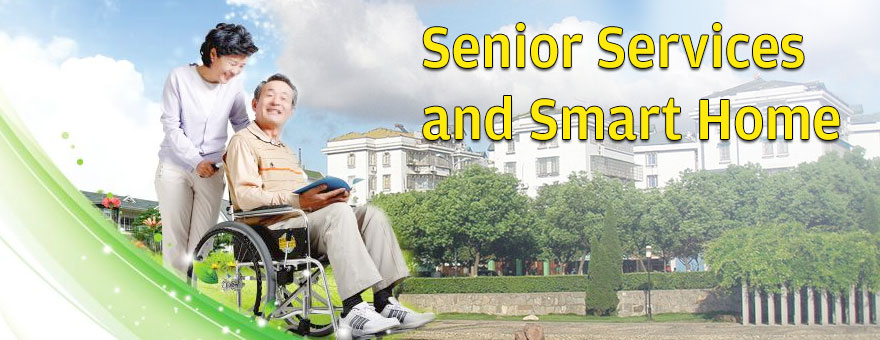
Activities Overview in Sino-Finnish Senior Services and Smart Home cooperation in the April-June 2014 Period
Jul 07 2014During the April – June 2014 period several events and meetings related to Senior Services and Smart Home areas, involving technology development, piloting and education & training services, have been organised or joined by the ICT Alliance and DIGILE.
Elderly care is an important area for innovative solutions and business creation. ICT Alliance was invited to discuss cooperation in elderly care services and concrete pilot opportunities with the representatives of Beijing Fengtai Economic and Information Technology Commission and the district management. Fengtai district has invested in information technology and created a roadmap towards “a wisdom district” but its population is aging fast. By the end of 2013, the elderly population accounted for as much as 24 percent of the whole registered district population. The large population base, the continuous growth and the large amount of elderly population are three main features of this aging district. Possible solutions are studied in elderly care pilots combining big data and mobile health solutions. It was agreed to continue discussions on how to implement ICT cooperation between Finland and China by providing best solutions on integrating ICT facilities into smart and innovative senior housing and management, as well as integrating worldwide most advanced technologies and experiences into the on-going projects in senior care services. This will provide opportunities for new business development via ICT Alliance cooperation. Examples include the already launched Business Ecosystems, like Elderly Care and Active Life, ECAL, as well as new ones focusing e.g. on Smart Home or on home based diagnostics.
– On 8-9 April and 14-17 April meetings were held in Shanghai, including meetings with BesTV/SMG, Tekes, Tongji University and Aalto University and VTT experts and the Sino-Finnish Center team.
– On 16 April it was announced that Mr. Matti Hämäläinen, DIGILE / ICT Alliance and Aalto, has been appointed as a National High-end Foreign Expert (under the State Administration of Foreign Experts Affairs Program) at Tongji University to act as the Director of a new Joint Lab on Intelligent Services Embedded in Everyday Life for the Wellbeing of Elderly (ISEEL).
– On 4-7 May Minister of Social Affairs and Health Paula Risikko visited China with more than 40 Finnish health care companies
– On 15 May the kick-off meeting of the first “Home-as-a-Service Platfrom” project was held at Urban Mill, Aalto, in Espoo.
– On 10 June China-Finland ICT Alliance, BlueAngel HongYe Investment (Group), Tekes, Finpro and China’s National Industry Alliance of Smart City Technology Innovation organised a workshop on smart agriculture, smart city and smart living services in Beijing. A meeting with China Aging Development Foundation, CADF, Chairman Mr. Li Baoku, was organised for planning of cooperation activities in ageing society services
– On 12 and 14 June a meeting with ICT Alliance and Shenzen Medical Education Center (SMEC) had a meeting on establishing a long term collaboration between China and Finland in senior care and integrated care training and services, and in particular the administration of senior care services that is about to emerge as an industry in China.

Focus area: Senior Services and Smart Home
Jul 07 2014Ageing of the population is a common trend in the developed countries and will start to face some of the developing societies as well. In China the challenges related to ageing society services – and the associated opportunities – are of exceptional scale. The statistics of Sixth National Population Census by the Chinese Ministry of Civil Affairs indicated that the number of people older than 60 years was close to 200 million (over 13 percent of the total population) in 2012 and the senior population will continue to grow very fast in coming 30 years. The one child policy (4-2-1 family structure) and urbanisation will further amplify this challenge.
Consequently, there is a vast gap between the elderly care resources and the needs in this growing market. The government naturally cannot alone take the responsibility of providing the needed services for the rapidly aging population in China. This creates new business opportunities in public services, private services and in citizen and consumer driven solutions. For example, the rapid growth of the (mobile) Internet in China as well as the rapidly developing communications and cloud infrastructure and the investments in IoT and related technologies will help to provide the needed infrastructure and building blocks for new services.
The development of digital solutions for new innovative services for the aging society has been a jointly identified area for China-Finland cooperation already for some years. For example, the Sino-Finnish Active Ageing cooperation initiative was launched at Shanghai World Expo 2010 and since then developed to involve activities in other cities, like Beijing and Wuhan and being extended e.g. to Shenzhen. China-Finland ICT Alliance has also chosen Senior Services as one of the focus areas. The aim is to help senior citizens to live active and quality life at homes longer, reduce the time period spent at hospitals by supporting rehabilitation and home care, support their active participation in the society, and facilitate social interaction with relatives and friends. The focus is not just on creating solutions that would categorically set elderly apart by “old people” but taking an integrative and holistic view. One element is to use the widely deployed consumer platforms for ensuring wide availability and for having basis for rapidly scaling solutions. For example, the very recent announcements (in June) on smart home and smart health platforms and development tools by major companies like Apple and Google and similar developments in China can be leveraged. The ICT Alliance activities combine research and developments in related areas, such as smart home, personal health and wellbeing, and smart communities and cities where demand responsive and situationally relevant services for the citizens are being studied.
A prerequisite of successful and wide adoption of technology solutions in elderly services is properly organized education and training. It has been estimated that up to 30 million people need to be (re)trained in the coming years in China to provide the services and to boost the creation of this new “senior industry”. When linked with the introduction of appropriate processes and supporting technologies, the benefits from new solutions can be realised. Even training as such is a substantial joint opportunity for Finnish and Chinese partners and relates well to the also on-going cooperation in learning solutions. It is important to put these activities in the “big picture” for understanding the market and priorities. The role of real estate industry that may for example enjoy special preferential treatments and support when developing senior communities with relevant services, the on-going and planned reforms in health insurance and medical services, and the initiatives aiming at better integrating IT industry and health sector in China are examples of such major areas and initiatives to position with.
In the ICT Alliance there has been an interest among a group of universities and companies to develop cooperation that would more actively link the areas of elderly services, personal health and wellbeing and smart home together. Recently, “Home-as-a-Service Platform” concept has been introduced by DIGILE as a potential framework to bring together related activities in these complimentary areas. For example, a “Home based personal services for elderly” concept is being developed by a consortium led by Active Life Village in close cooperation with DIGILE, with cities, such as the City of Espoo and Municipality of Pyhtää, and with the Ministry of Transport and Communications. With such a comprehensive initiatives that bring together companies, universities and key public sector actors – working closely together with the Chinese development and channel partners and with the key stakeholders – we can together create more relevant propositions for the Chinese market. And in the next phase, with Chinese partners, to bring very competitive and advanced solutions to the growing international markets.
The new Research program on promoting health and wellness, planned jointly by SalWe and DIGILE, could play an important role in the senior services area and in China cooperation. It is tentatively titled as “Speedy Recovery” as it aims at drastically shortening the stay in hospitals and speeding up rehabilitation at home.

Activities Overview in Sino-Finnish EduTech cooperation in the April-June 2014 period
Jun 26 2014During the April-June 2014 period several events involving the SFLG and EduTech Ecosystem and related research have been organised. In addition to closely working with the MoEC in the development of the SFLG, DIGILE and the ICT Alliance have intensified cooperation with active entities in this area, in particular with the Learning Solutions Programme of Tekes, with the Chinese Education Research and Exchange Centre (CEREC) based at the University of Tampere, and with Future Learning Finland, to ensure synchronised actions towards China.
– On 10 April EduTech meetings were organised in Beijing for planning the SFLG development with MoEC, and with Beijing Normal University (BNU), the leading education university, and with BNU Publishing Group, correspondingly a leading educational publisher in China
– On 24 April 2014 the Board of Directors of DIGILE approved EduTech as a new Business Ecosystem Programme and the first company groups for the business pilots have been formed
– On 25 April the Finn-Sino Education Forum was organised by the University of Tampere/ CEREC andthe City of Tampereto identify opportunities and challenges in education cooperation between Finland and China
– On 21 May the Sino-Finnish Learning Garden planning meeting was organised at the Ministry of Education and Culture in Helsinki, involving EduTech Ecosystem and China-Finland ICT Alliance represented by DIGILE. As the main outcome a number of Pilot projects will be suggested to SFLG
– On 22 May a meeting with the companies representing the first set of EduTech pilots was held at DIGILE: ”Professional education” (transport / airport personnel training) is led by Airport College, with partners involving Context Learning Finland and Neoxen Systems. The ”Kindergarten & pre-school” pilot is led by DibiSchool involving eOasis and Solutions Space as partners
– On 22 May a reception was held in Helsinki for Mr. Eddie Ng, Hong Kong Secretary for Education, during his visit to Finland. In his speech the prime position that education has in the development of Hong Kong’s future was highlighted. Hong Kong’s progressive approach and prominent role as “education society” was highlighted and some of the opportunities for Finnish actors were identified, including the Finnish learning approach and the supporting solutions. The EduTech Ecosystem aims at establishing active cooperation also for HK markets, under the SFLG framework
– On 9 June China-Finland ICT Alliance and Beijing Normal University organised Sino-Finnish Learning Garden and EduTech Workshop in Beijing to push forward pilots in education technology and learning services as well as to focus on technologies and services research
– On 15 June a meeting was held at the East China Normal University, hosted by Prof. Zhu Zhiting, Dean of the School of Open Learning and Education, Director of Shanghai Engineering Research Center of Digital Equipment and China e-Learning Technology Standardization Committee and member of several key committees. In the meeting Prof- Zhu expressed interest in cooperating in the Sino-Finnish Learning Garden, the EduTech Ecosystem and the EduTech Research Forum. He has already been involved in cooperation discussions on Next Generation of eTextBook project of DIGILE’s Digital Services Programme (University of Jyväskylä). It was agreed that cooperation regarding the development of e-Textbooks and e-Schoolbag would be examined.

Focus area: Education Solutions and Services
Jun 26 2014China-Finland ICT Alliance and DIGILE activities in education represent the “Learning Solutions” part of the Sino-Finnish Learning Garden (SFLG) that has been initiated by the Finnish Ministry of Education and Culture (MoEC) and being developed in cooperation with the Chinese Ministry of Education (MoE). Working together with the key academic, public and industry partners in both countries, this focus area aims at bringing schools, academia, national research programmes (e.g. the Academy of Finland and Tekes, the SHOKs such as DIGILE), China-Finland ICT Alliance, companies and authorities to join their efforts to co-create modern learning solutions to foster 21st century skills among students in China and Finland. It covers learning research, teacher training and learning solutions, i.e. technology, services, and content, ranging from kindergarten to primary, secondary, higher education and to vocational and professional education.
The DIGILE and China-Finland ICT Alliance activities take place in two main areas in learning solution cooperation:
I EduTech Business Ecosystem: for creating, testing, adapting and scaling innovative solutions in education, involving international business pilots together with Chinese partners. The EduTech Ecosystem is meant for companies.
II EduTech Research Forum: for universities and research institutions, planned to launch in September 2014 (at the Forum on Education Solutions for Sino-Finnish Learning Garden – ”21st Century Learning Skills”).
In addition there are ongoing discussions for setting up joint education Cloud services for R&D&I and pilots in China.
Some observations on online education and learning solutions market in China
Online education and learning solutions area is under an active development both for serving public sector and private sector educational institutions as well as the huge online (and mobile) consumer market in China.There are several major developments and education reforms ongoing or being planned that may provide joint development and business opportunities. Examples of these include the need to deliver education to the countryside, the growing demand of vocational education including in public and private sectors, and the education reforms ranging from Kindergartens to universities that will extensively leverage digital delivery (e.g. the education cloud services, the e-textbook and e-Schoolbag initiative and others).
The Chinese education tradition has emphasised performance in exams at various levels and the major goal for students is the Gaokao national university entrance exams. In June 2014 close to 10 million students participated.There is a call for renewal of the education system to emphasise more open-ended and innovation-driven approaches and the learning of “soft skills” in addition to the “hard facts” as the prevailing education approaches are not optimal for meeting the future needs.
What Finland may bring into play also in the EduTech area is the support for enabling the move towards student-centered approach, complementing the theory and textbook based materials with real-life experiences, and providing solutions for learning the so called “21st century learning skills” in social settings, encouraging experimentation and allowing for failure. The “Learning is Fun” approach promoted by many of the Finnish education experts and EduTech companies can also encourage students to become involved in social and physical activities for learning the “soft skills” and for better wellbeing.
The rapid growth of China’s Internet and mobile user base has continued and the number Internet users in China reached over 600 million by 2013. It is particularly noticeable that since the penetration of (mobile) Internet reached close to half of the population the online education market has grown even much faster. While market growth demonstrates the potential, the field is becoming fiercely competed as market positions are being built. The established players, like New Oriental, face new challengers, including the Internet e-commerce, social networking and games giants, like Alibaba and Tencent, that provide education services and apps stores. Actually, new partnerships are being formed among the players (e.g. New Oriental has teamed up with BesTV and rumoured to also join forces with Tencent).
Some recent trends in the market indicate that parents are prepared to spend even more on the education of their child as the income level has risen. In order to adopt new solutions there should be demonstrated evidence on the benefits, including not only new skills and wellbeing but also maintaining or improving performance in the mandatory tests, when dealing with curriculum topics.
The rural-urban migration continues and will be increasing demand for vocational education and adult education encouraging private investments. Working together with actors involved in the development of the vocational education and well as in the renewal of the university sector, like the development of the universities of applied sciences in China, there will be better visibility to the needs for digital solutions and possibilities to cooperate with their development and large-scale deployment. While cooperating on research and pilots related to education reforms the learning solutions (technology and services) should be considered as a part of more comprehensive Sino-Finnish solutions, involving teacher training, curriculum development so that the learning solutions are integrated, and the development of the physical and virtual (online) learning spaces, including classrooms and complete schools that enable new kinds of learning and also support wellbeing of students.
About the challenges and opportunities in the public and private sector and consumer market
Despite the rapid growth, the consumer market in digital content and services appears to be challenging for international players. For example, the entertainment content, such as movies, music, TV shows and games the models differ from those in the West. For example, in mobile apps and games, the revenues are seldom generated from the downloads but rather in-app (in-game) purchases of value adding services, such as speeding up in the game, getting to next levels, etc. Due to the sheer size of the market experiencing growing demand of learning services in areas such as English language or mathematics, there is a lot of competition, including also free offerings. However, the parents often pay for the solutions if they can be demonstrated to bring progress in learning (e.g. in passing the curriculum tests).
Taking the market environment into account in planning, the offerings and business models will be needed. With quality content and right kinds of partnerships, the consumer market is a viable area. There is a good track record of Finnish game companies to be followed by educational offerings.
In parallel, the public education and private schools markets will be addressable when the appropriate channels are established and solutions certified. Indeed, in the public sector where the solutions are part of the curriculum, the role of education authorities is essential and without being approved to the curriculum it will be difficult to bring solutions to the market. As some parts of the curriculum may be defined at the local level, it will be important to establish cooperation with authorities and education experts who can mandate and carry out special pilots at the City and District levels. In the Sino-Finnish Learning Garden, contacts have been established with Municipal Education Commissions in Beijing and in Shanghai. For a Finnish provider, one school district even in a second tier city may be a major case.
The EduTech Ecosystem – enabling business pilots in China
While there are many interesting learning area comes in Finland they often lack the resources to go alone into new markets, like China. With EduTech Business Ecosystem, representing the learning solutions of the Sino-Finnish Learning Garden, we gather together companies to form business pilots and “clusters” to better to meet the demand. In the Ecosystem the effort and risk can be shared and the creation of a more comprehensive and therefore more attractive offerings becomes possible.
More importantly, the aim is not just to enable of Finnish solutions export and localisation in China, but together with Chinese partners to develop solutions for China and Finland – and to the global learning market.”We try to get contacts for the benefit of business solutions, experimentation, implementation and business development in China. And when we put the reputation of Finland in the game, we have together with companies to ensure that we keep our promises. This is for all of us it is a positive challenge.”
Cooperation with Tekes Learning Solution programme
EduTech Ecosystem and ICT Alliance have initiated cooperation with Tekes Learning Solution programme to leverage the synergies. On 3 June Tekes Business Breakfast was organised at Finlandia Hall by the Learning Solutions Programme in cooperation with DIGILE. The meeting gathered a number of companies and organisations interested in the EduTech Ecosystem and in exploring the Chinese education market.
The programme was opened by Ms. Suvi Sundquist, Director of the Learning Solutions Programme of Tekes, followed by presentation on EduTech Ecosystem and the Sino-Finnish Learning Garden by Mr. Matti Hämäläinen, and the FORGE Service Lab by Mrs. Pia Erkinheimo, Head of Crowds & Communities, at DIGILE. The session resulted to the group of interested companies join EduTech in areas such as primary school education as well as professional education.
Summary of the activities in Sino-Finnish EduTech cooperation in the April-June 2014 period

China-Finland ICT Alliance: Newsletter: January-March 2014
Apr 16 2014
China-Finland ICT Alliance Finnish Partners Workshop


It includes University of Oulu, Aalto University, University of Helsinki, Shanghai Jiaotong University, Tsinghua University, Beijing University of Posts and Telecommunications (BUPT), and Huazhong University of Science and Technology as its academic partners. Sensing City Traffic was presented by Dr. Timo Nyberg, Aalto University. The academic partners include Aalto University and Chinese Academy of Sciences. These projects intensify research cooperation among each other and with related projects in Finland and China as described in the Research Forum Working group section below.
The project focusing on navigation systems cooperation, Finland’s Enhanced Navigation using COMPASS/Beidou Signals, was presented by Dr. Laura Ruotsalainen, Finnish Geodetic Institute (FGI). Finnish Geodetic Institute (FGI), GNSS Research Center (GRC) in Wuhan University, and Chinese Antarctic Center of Surveying and Mapping (CACSM) are the research partners. There is an interest both sides in China and Finland to extend this cooperation to include new research partners and companies (e.g. with Geostar who also joined the workshop).
Related to future activity planning, presentations were also given by invited experts: Dr. Sergey Andreev with Prof. Evgeny Kucheryavy, Tampere University of Technology, presented their research on Improved Connectivity and Service Experience in Heterogeneous 5G Deployments; and Future Networking cooperation (Beyond Internet) was represented by Dr. Arto Karila and Dr. Dmitrji Lagutin, who have been carrying on cooperation with Future Network Innovation Institute of China (FNII) based in Nanjing.
In the working session Prof. Jyrki Nummenmaa, University of Tampere, introduced their research activities in intelligent traffic (related to the City of Tampere’s Intelligent Traffic activities) and cooperation links in China.
An update on eServices and eBusiness research and the eBEREA network activities was presented by Prof. Jukka Heikkilä, University of Turku. Currently, active areas include research on developing and implementing digital services for “young elderly” in the BeWell research activity. It is now a part of DIGILE’s D2I research programme and has several company and research partners in Finland and is closely linked with international partners in China, Germany, Italy, Sweden and The Netherlands.
Dr. Risto Vilkko, Academy of Finland, presented the cooperation framework between the Academy of Finland and the National Natural Science Foundation of China (NSFC) and the process for the ongoing preparation of a joint call on 5G networks. Dr. Mika Klemettinen, Tekes, described Tekes’ activities and future directions in the networking and Internet of Things areas that are thematically related to the ongoing and new initiatives in ICT Alliance. Companies in the field of future networks, everyday sensing and social media, and geoservices were presented by Dr. Philip Ginzboorg, Huawei, Mr. Kimmo Valtonen, M-Brain and Mr. Tony Liu, Geostar (WudaGeo).

China-Finland Workshop on 5G Networks in Shanghai
The objectives of the workshop were to discuss current developments in future network research, identify joint research interests in the field of 5G and finalise the collaborative Finland-China research project agenda. Considering the long term track record in Finland on cellular network development starting from General System for Mobile Communications (GSM), and the urgent demand for advanced mobile technologies in China, it is beneficial and strategic important to carry on joint 5G research in areas such as system design; air interface and multi-antenna; new spectrum, millimetre wave air interface and backhaul; efficient hardware and platforms, multi-cell, and signal processing; as well as management and modelling.
From the Chinese side, technical presentations were given by Prof. Xiaohu Ge, Huazhong University of Science and Technology, Prof. Jianhua Zhang, Beijing University of Posts and Telecommunications, Prof. Honglin Hu, Shanghai Institute of Microsystem and Information Technology, Chinese Academy of Sciences, Prof. Qinyu Zhang, Harbin Institute of Technology, Dr. Fusheng Zhe, ZTE Corporation, Prof. Hua Zhang, Southeast University, Prof. Pinyi Ren, Xi’an Jiaotong University, Prof. Shengjie Zhao, Tongji University, Prof. Zhisheng Niu, Tsinghua University, Prof. Gang Wu, University of Electronic Science and Technology of China, Prof. Wuyang Zhou, University of Science and Technology of China, and Prof. Lingyang Song, Peking University.
From the Finnish side, presentations were given by Prof. Evgeny Kucheryavy, Tampere University of Technology, Prof. Mikko Valkama Tampere University of Technology, Dr. Sergey Andreev, Tampere University of Technology, Prof. Sasu Tarkoma, University of Helsinki, Dr. Tao Chen, VTT Technical Research Centre of Finland, Prof. Antti-Heikki Tölli, University of Oulu, Prof. Riku Jäntti, Aalto University, and Dr. Kari Pehkonen, Broadcom Communications Finland Ltd. On behalf of China-Finland ICT Alliance, Dr. Jani Kaarlejärvi talked about the 5G elements of Horizon 2020, and financial opportunities in setting up joint, large-scale Finland-China-EU projects in the field of 5G. To begin a joint 5G EU proposal planning raised a lot of interest, and one or two joint teams could be set up to begin the planning for Call 14.
After three days of actively elaborating of the content of the joint call for Chinese-Finnish scientific cooperation, National Natural Science Foundation of China and Academy of Finland signed the Memorandum of Understanding concerning joint call on 5G networks. According to the preliminary schedule, the joint call will be published and opened in June 2014, decisions will be made in October 2014 and the funding period would begin in early 2015.
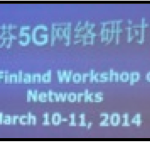
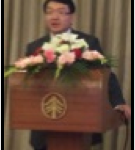

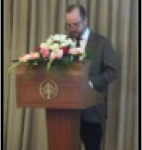

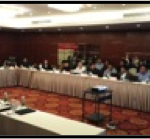
China-focused EduTech Business Ecosystem Workshop
Education is a focal area in China-Finland cooperation and to better synchronise activities and boost the impact of cooperation, the ”Sino–Finnish Learning Factory” (SFLF) initiative has been prepared under the direction of the Finnish Ministry of Education and Culture together with a team of experts from companies, research institutions and organisations. The initial areas suggested for the SFLF initiative include: learning research, teacher training and learning solutions, i.e. technology, services, and content ranging from kindergarten to primary, secondary and higher education and to vocational and professional education. When preparing the SFLF initiative, Digile as the Coordinator of China-Finland ICT Alliance has been invited to facilitate the cooperation of education technology and services companies, including related piloting and research. The preparation of EduTech business ecosystem started by Digile in 2013 together with those companies that were interested in education technologies and services area, under a theme “Education-as-a-Service”.

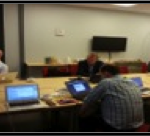
The second pilot was outlined by Mr. Ari Ketola, Context Learning Finland, Mr. Pentti Mero, Airport College, and Mr. Esa Tervo, Neoxen. It focuses on professional and corporate training, on transport and logistics in particular, targeting e.g. airport professional training. Mr. Mika Martikainen, Skilltize, described their offering in real-time online training and tutoring, with an initial focus on languages (English and other) and mathematics. Synergies were identified among these two pilots in planning and potential for a few additional pilots to be specified during the planning process. It has also become obvious that there is an interest among the partners to involve research centers in the EduTech cooperation model. A Research forum for education technologies and services focus area within ICT Alliance is now in active planning.
Focus area: Intelligent Sensing and Services for Traffic and Mobility in Urban Environment
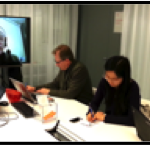
Focus area: Elderly Services and Smart Home
In the ICT Alliance context, there has been an interest among a group of universities and companies to develop cooperation that would more actively link the areas of elderly services, personal health and wellbeing and smart home together. A “Home-as-a-Service Platform” concept has been introduced by Digile as a potential framework to bring together related activities in these complimentary areas. For example, a “Home based personal services for elderly” concept is being developed by Active Life Village and its partners in close cooperation with cities, such as the City of Espoo.
Elderly services and smart home solutions will be discussed in Beijing in early May 2014 in an international cooperation meeting hosted by the Beijing Academy of Science and Technology (BJAST), a key ICT Alliance partner in this area, involving also Fraunhofer IAO and representatives from Taiwan and Korea. Dr. Matti Hämäläinen, as the ICT Alliance representative, will also join the “3rd China International Senior Services Expo” (CISSE 2014) that is the main event in this field. This trip will also include visits to Zhongguancun Z-Park and Life Science Park for extending cooperation in these areas (these events coincide with the planned visit of Minister for Social Affairs and Health, Paula Risikko, in Beijing at the same time).
Hanasaari Forum on Nordic Education, Exporting Education Knowhow and China Cooperation


Focus area: Environmental Monitoring (Air Quality)
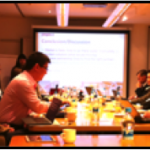
Pure Finland 2014 – High-level Events in Beijing in Autumn 2014

- “Coolest brands from Finland”, September;
- “Destination Finland”, 23-25 October;
- “Innovation Finland”, 25-27 November; and
- “Creative Finland”, December.
Jani Kaarlejärvi Appointed an Advisory Board Member in the European Commission funded CHOICE project on EU-China cooperation on ICT R&D&I
Through its objectives, the CHOICE project creates a bridge towards Horizon 2020 to shift away from technology-driven towards innovation-driven ICT R&D based on societal and consumer needs:
• Identify obstacles to reciprocity and encouraging a more balanced ICT R&D&I relationship with China based on reciprocity, supporting European nationals, companies and organisations willing to access Chinese research programmes;
• Highlight and showcase European and Chinese excellence in ICT R&D; and
• Strengthen EU-China industrial ICT R&D cooperation, also with the view of preparing the ground for new upcoming rules governing EU-China ICT R&D cooperation under Horizon 2020.

Next Activities and Actions
- China-Finland ICT Alliance new initiative meetings in Shanghai, Beijing and Wuhan, 7-17 April
- Cooperation meetings on Elderly Care Services and “Smart Home for elderly”, 3-9 May, Beijing
- China-Finland ICT Alliance new initiative meetings in Shanghai and Beijing, June
- ICT Alliance Research Forum on Intelligent Sensing and Services in Urban Environment for Traffic and Mobility (ISSUE-TM) during the 10th ITS European Congress, 16-19 June, Helsinki
- International Conference on Management Science and Engineering (21th) (ICMSE2014) in cooperation with eBEREA network, 17-18 August, Helsinki
- Finnish-Chinese Workshop on Analysis of Social Media, University of Tampere, 6-13 August, Tampere
- Pure Finland, “Coolest brands from Finland”, September, Beijing
- Shanghai Design Week, 13.-17.10.2014, Shanghai
- Radical Design Week, 16.-25.10.2014, Shanghai
- Pure Finland, “Destination Finland”, 23-25 October, Beijing
- Pure Finland, “Innovation Finland”, 25-27 November, Beijing
- Pure Finland, “Creative Finland”, December, Beijing
More Information on China-Finland ICT Alliance and Digile
For more information, please visit the China-Finland ICT Alliance website www.ictalliance.org, Digile website www.digile.fi and http://www.digile.fi/DIGILEintro or contact Dr. Matti Hämäläinen and Dr. Jani Kaarlejärvi (firstname.lastname@digile.fi).
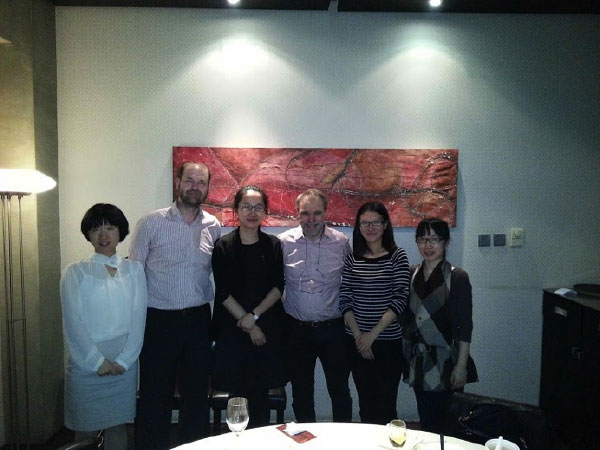
Sino-Finnish Learning Garden Meeting in Beijing: New learning solutions and technologies are needed for Chinese basic and vocational education
Apr 15 2014On 10 April EduTech meetings were organised in Beijing for planning the SFLG development with MoEC, and with Beijing Normal University (BNU), the leading education university, and with BNU Publishing Group, a leading educational publisher in China.
In the meetings with Mr. Mika Tirronen, Counsellor (Science & Education), Embassy of Finland, the key cooperation areas were discussed, including both basic education and vocational education areas that are currently in focus in China and considered for renewal based on learning from best practices and solutions in other countries. Finland is a recognised partner in these areas.
The role of local authorities is of prime importance. Cooperation with Beijing Municipal Education Committee (BMEC) and Shanghai Municipal Education Committee (SMEC) has been initiated. There is interest in linking schools directly to the SFLG activities in these cities and with the corresponding cities in Finland. The sister city relationship of City of Espoo and City of Shanghai and the relationship of the City of Helsinki and City of Beijing will help to facilitate the linking of corresponding education authorities and schools. There is already ongoing cooperation among the schools, including headmasters and teachers, as well as visit programmes.
When considering the role EduTech Ecosystem and Research Forum, we see the technology based solutions helping to boost the collaboration and learning of new practices and solutions both ways, and bring the physical space and the ritual online space together. To support the cooperation, the concepts of “Joint Learning Labs” and “Finland Classrooms” have been discussed with the involved universities and companies in Finland and in China.
Meeting with CEREC representatives, Mr. Yuzhou Cai, and a delegation from the University of Tampere, was organised at BNU to jointly plan the cooperation with CEREC in the SFLG EduTech area and in the China-Finland ICT Alliance. CEREC and the corresponding center at BNU, the Finnish Education Research Centre (FERC), have already established cooperation and can support in several areas including learning administration, quality assurance, teacher training, and guidelines development.
At BNU, Ms. Jun Wang, Deputy Director, Office of International Exchange & Cooperation, hosted a meeting with Mika Tirronen, Matti Hämäläinen and Jani Kaarlejärvi from the Finnish side and Prof. Shengquan Yu, Director, the Joint Laboratory for Mobile Learning, Ministry of Education – China Mobile Communication Corporation, and Ms. Xi Xie, Beijing Normal University Publishing Group (BNUPG) to discuss the research and business pilots cooperation planned to be launched during 2014.
BNU is in a position to become a key hub for EduTech research and as well as facilitate EduTech Ecosystem business pilots in selected test schools to help understanding the requirements of the local schools as well as those set by the national and local curriculum. When relevant content and digital solutions have been identified, BNUPG will consider involvement in their focal areas respectively. BNUPG has been recognised as a higher education publisher and they also indicated interest in Kindergarten area solutions and content. It was agreed that follow-up meetings all be organised in June and joint workshops to be planned for the October-November time frame when high-level land expert delegations will visit China (possibly to be organised to coincide with the PURE Finland events).
In addition to introducing the solutions form Finland, a key area in the EduTech cooperation will be joint development and testing of new learning solutions and learning environments. This can involve mobile learning, ubiquitous access, wearable technologies, augmented reality and related technologies that help bridge the physical and virtual world. This may take place in the Joint Lab that BNU has set up with China Mobile (CMCC). The next step is to start planning of concrete the cooperation in development, testing and piloting of education technology solutions and services as well as joint research, including e.g. learning analytics, sensing technologies, and others.
For EduTech the next step will be identifying the potential pilots for BNU and BNUPG to discus with the selected Finnish companies. BNU has already a good experience in working with Finnish approach in the GraphoGame case, developed by the University of Jyväskylä (Prof. Heikki Lyytinen and his team). The potential solutions to be piloted include educational games for maths, languages, and other skills, including music. Also, new learning service platforms and technologies (e.g. ultra low energy e-paper, NFC and other physical world /digital world interaction) are potential candidates.

New CHOICE project on Strengthening Chinese Collaboration on ICT R&D with Europe
Apr 11 2014A new EU-China cooperation project has been launched last January 2014 aiming to provide continuity and progress in supporting and strengthening China Collaboration on ICT research with Europe.
The CHOICE project is funded by the European Commission DG CONNECT through its 7th Framework Programme and comprises Chinese and European partners, involved in previous and on-going EU-China collaboration projects, that will ensure all the valuable outputs of previous projects will be fully exploited and that synergies with relevant projects will be developed.
During its two-year duration, the CHOICE project emphasis will be put on:
· Identifying obstacles to reciprocity and encouraging a more balanced relationship with China based on reciprocity, especially supporting European nationals, companies and organisations willing to access Chinese research programmes;
· Highlighting and showcasing both EU and Chinese excellence in ICT R&D;
· Strengthening EU-China industrial ICT R&D cooperation, also with the view of preparing the ground for new upcoming rules governing EU-China ICT R&D cooperation under Horizon 2020 (H2020).
Thanks to this approach, the CHOICE project will create a bridge towards H2020 and capitalize on the timely conjunction of H2020 shift away from technology driven towards innovation driven ICT R&D based on societal needs and consumer aspirations, with the Chinese Government’s firm commitment to growing domestic demand, thus emphasizing opportunities in China for the exploitation of H2020 and in particular its potential for contributing to increasing Chinese domestic demand.
For more information, visit: http://www.euchina-ict.eu, follow the project on Twitter: @EUChinaICT and the discussions on LinkedIn: EU-China Cooperation on ICT research !

ICT Alliance Workshop meeting for Finnish partners on 11 Feb 2014 at DIGILE (Otaniemi)
Jan 15 2014Dear ICT Alliance partners,
Thank you for active work in 2013 and Happy New Year 2014 to you all!
We would like to inform that next Workshop for the Finnish ICT Alliance partners is suggested to be held on 11 February 2014 at DIGILE in Otaniemi.
There we aim at reviewing the progress since Shanghai kick-off event and spending substantial part of the time in discussing the ways of developing the ICT Alliance activities further so that they could better serve the needs of current and future partners – and also enable parties to actively contribute.
Please let us know by Friday 24.1 the expected participants from your projects.
Also, please advise us who will be the main contact points in your project .
These may be different than the original contacts in the Tekes application (as we already learned when preparing the September 2013 Shanghai Workshop).
Also, let us know if some people should be added to the list for your projects.
China-Finland ICT Alliance Finnish partners Workshop
Time: Tuesday 11 February 2014, 9:00 − 15:00
Location: DIGILE, Showroom,
Vaisalantie 6, 02130 Espoo (Falcon Business Park in Otaniemi), see: http://www.digile.fi/contact
When at reception call Matti (+358 40 758 0150) or Jani for picking up (+358 40 540 7896)
Participation: Representative(s) of the Phase II projects and Invited experts in New Initiatives.
Tentative Agenda:
1. Update on the China-Finland ICT Alliance
2. Projects update (max 10 min each)
by the project leads/representatives, summaries will be requested beforehand
3. Discussion on modes of cooperation, including Research Projects, Business Ecosystems and Research Forums, and other planned for 2014
4. Planning the events in 2014
Timing and content of Workshops and other events
5. Other issues
—
Year 2013 in retrospect:
Year 2013 was the beginning of a new phase (Phase II) of the China-Finland ICT Alliance.
Building on research cooperation in information and communication technology the ICT Alliance has continued to extend its activities in digital services in areas of joint interest. Aging society, urban mobility and traffic, and education – among other – are application areas that have become focal in cooperation and the activities are expected to expand during this year in addition to the future energy efficient networks, sensing and other technology topics.
The second half of 2013 reflects the evolution of the ICT Alliance, following the digitalization of almost all aspects of society, industries and our everyday life. In addition to the official kick-off of Phase II projects in September Workshop in Shanghai, quite a few events took place in the September – December time frame to promote ICT Alliance cooperation in business oriented R&D&I in ICT and digital services. Examples include joining the Pujiang Innovation Forum in Shanghai (the key innovation event in China organized by MOST with Finland as the Country of Honor in 2013) as well as joining the visits of Minister Risikko, Viitanen and Kiuru to highlight the ongoing cooperation and new opportunities in ICT and digital services in their respective areas (Health and Wellbeing, Communication and Housing, and Education). The invited participation of ICT Alliance as a Showcase in the OpenChina-ICT Final Conference on Strengthening Cooperation in ICT Research between Europe and China is an example of recognition that may help in positioning Finland as a potential “gateway” for China-EU R&D&I cooperation. In 2014 the work continues in the development of the ICT Alliance as an open “platform” for international cooperation.
Please, find attached the summary of the second half of 2013 ICT Alliance activities: “China -Finland ICT Alliance August – December 2013 Update” (you may distribute it freely to parties you expect to be interested in ICT Alliance and China-Finland cooperation). This newsletter format has proven to be useful in conveying information about the activities and we plan on publishing it on a monthly basis on the Website. We would also be happy to include sections that provide information about the events and progress in the projects more often than what is possible in the Workshops.
Preparing for year 2014
We may expect that 2014 will be an active year in the China-Finland cooperation. At the beginning of the year it is good time to review the progress that has taken place since our last joint Workshop in Shanghai, share information about future plans, prepare for the future events and discuss new opportunities. These may be, for example, involve new cooperation modes such as Business Ecosystems and Research Forums (an update on these will be given in the Workshop), as well as in extending the bilateral work to multilateral and wider international contexts, such as China-EU projects.
While there are several areas where the Chinese entities, including universities, research centers and companies, have indicated their interest in cooperating with Finland and Finnish partners, financing the R&D&I cooperation remains a challenge. This is particularly true when considering public funding for the university research but similar challenges appear also when companies are looking to get financing for initiating cooperation in new areas. In this situation it becomes even more important to be able to link complementary activities and resources as well as different modes of operation (e.g. cooperation in research projects, education and in business pilots).
The project based work may be considered as the “backbone” of the ICT Alliance and it is worthwhile to consider how the next projects can be built on current cooperation and results – and how new parties already working with China or interested in joining may be brought into play in the ares of joint interest. The difference in scale between China and Finland, including size of markets and the resources available, requires both focusing and pooling of resources that may come from other actors and projects in Finland as well as elsewhere (i.e. act as “gateway” or “hub”).
Feedback and ideas for events and activities:
We are working on a list of events that will be organized or co-organized by the ICT Alliance during 2014 both in Finland and in China and will share that in the coming weeks before the February workshop.
We would be happy to get your ideas and input on such initiatives and events in which China-Finland R&D&I cooperation in ICT and digital services could have role. This would allow us well in advance to contact the relevant Finnish and Chinese experts and entities who may contribute our activities – and also benefit from participation. Also, this would allow us to synchronize the Alliance with other Finland-China events.
We look forward to you your ideas and views for developing both the ICT Alliance, the ways of working and the work in the substance areas that you see relevant for the cooperation.
Looking forward to meeting you in Otaniemi, at DIGILE, on 11 February 2014.


New initiatives launched in November-December 2013
Dec 16 2013China-Finland ICT Alliance November – December 2013 Update

ICT Alliance as a Showcase in the OpenChina-ICT Final Conference on Strengthening Cooperation in ICT Research between Europe and China
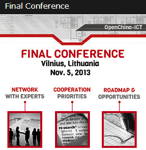
The conference gathered about 100 experts from industry, business and research both from China and Europe. Its first session was on EU-China collaboration perspectives, second session was on cooperation priorities in ICT among the two regions, and third session provided recommendations and suggestions for EU-China successful ICT research cooperation. Key discussion topics focused on:
- what will be the impact of Europe’s financial pressure on European funded international research?
- what Horizon 2020 will mean for Europe-China R&D&I cooperation?
- what are concrete perspectives for cooperation on ICT research under Horizon 2020?
- what way global grand challenges that both regional areas face can be tackled via joint R&D&I activities?
- should the European Commission have a stronger role in the coordination of bilateral cooperation activities of European Member States?
- should Chinese-European ICT research concentrate even more on actual industry needs and mutual market access of Chinese and European value chains?

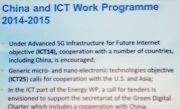
ICT Alliance in the Horizon 2020 ICT Work Programme Kick-off Conference
- ICT work programme for 2014;
- Investing in key enabling technologies;
- ICT applied to social innovations;
- Women in ICT business;
- Open data and digital content;
- Smart home and smart living;
- Cloud computing; and
- Future Internet.



- Call 7: Advanced Cloud infrastructures and services;
- Call 8: Boosting public sector productivity and innovation through Cloud computing services;
- Call 13: Web entrepreneurship;
- Call 14: Advanced 5G network infrastructure for the future Internet;
- Call 15: Big data and open data innovation and take-up; and
- Call 16: Big data – research.

Horizon 2020 ICT Work Programme Kick-off conference proved to be highly relevant event for assessing the current status and the new initiatives of China-Finland ICT Alliance. The on-going ICT Alliance projects and the new initiatives match Horizon 2020 ICT Work Programme and the broader EU-China collaboration objectives well. Likewise, the OpenChina‐ICT recommendations of the six optional and complementary routes for future cooperation between Europe and China are taken into use in ICT Alliance as it carries out jointly defined cooperation in R&D projects that involve researcher and student exchanges and are industry-driven – involving also SMEs and innovative start-ups. It provides input both to bilateral and EU level dialogue and is involved in City level collaboration when addressing challenges facing urban societies. Some of the key thematic topics and forthcoming calls are highlighted below.
The key thematic topics discussed in the Kick-off conference are active in the ICT Alliance cooperation. Examples include Smart home and smart living; Cloud computing; and Future Internet. Open data is also gaining attention in particular at City levels for enabling citizen-driven and third party service innovation. Smart home and smart living topics have been on the agenda in ICT Alliance since 2012. For example, the “active life home” services have also been developed and jointly piloted for example in Beijing and Shanghai, and an ecosystem activity on elderly care and active life (ECAL) has been launched by DIGILE. Also, the work in preparing an open mobile and embedded ecosystem (OMECO) aiming at developing open software and open hardware platforms that would help linking “everyday sensing” and common consumer platforms to create highly scalable horizontal solutions has selected “Smart Home” as one of the first potential application areas. The “everyday life” data collection also plays an important role in these activities.
Calls in the ICT Work Programme 2014-2015 include areas where, in the ICT Alliance context, there is a track record of active joint work as well as newly launched projects between China and Finland and with other EU countries being linked. These projects relate among other things to:
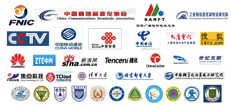
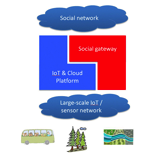

- Call 7: Advanced Cloud infrastructures and services where current projects e.g. “Everyday Sensing” have activities.
- Call 8: Boosting public sector productivity and innovation through Cloud computing services, where a new initiative is being prepared, involving also ICT Alliance, for launching a large scale real-life experimentation environment for development of future public digital services across Europe that are well trusted by citizens as well as by public and private service providers and that enable service roaming.
- Call 14: Advanced 5G network infrastructure for Future Internet, opportunity for a joint proposal is being studied. A strong proposal and consortium can be built on the several years of joint research partnerships in ICT Alliance in wireless access and energy efficient networking projects since 2009. From the Chinese side active parties involve e.g. WiCo (the Coordinator of ICT Alliance China side), Huazhong University of Science and Technology (HUST) and other key universities, with positive feedback also from the NSFC. The Finnish active research partners include VTT, University of Oulu, Aalto University, and Tampere University of Technology. A preparatory joint China-Finland/EU workshop has been proposed for Q1/2014 in Beijing with ICT Alliance involvement on Advanced 5G.
- Call 15: Big data and open data innovation and take-up; and
- Call 16: Big data – research, relate to ICT Alliance Phase II projects, like “Everyday Sensing”, “Sensing City Traffic”, and are focal areas in the enterprise cooperation discussions with entities like Z-Park / Zhongguancun Science Park. Open data plays particularly important role in the citizen and 3rd party driven innovation of public services as mentioned above. ICT Alliance is active in jointly identified services area with entities developing services for Cities like Beijing and Shanghai. New initiatives in real-time economy and novel financial services to boost innovation are in preparation phase in the ICT Alliance, and will be making extensive use of the big data approach. Likewise, in the various areas of everyday sensing and demand responsive (services for) cities these techniques will be developed further and employed.
ICT Alliance cooperation activities have been developed in areas such as open mobile and embedded software and hardware platforms and tools. The “City-on-Demand ” concept is being developed to introduce service architecture thinking that includes both design of the physical urban environment and the digital service environment for creation of demand driven service solutions. Examples include mobility in urban areas, configurable spaces and access flow, and other services enabling better resource sharing and sustainable solutions. Complementing the activities in specific technology and application areas the ICT Alliance has taken active role in developing R&D&I cooperation in the horizontal area of education and training. The work covers new technology enabled solutions and ”Education-as-a-Service” concept. These are being developed, among other, by launching EDUTECH ecosystem activity (prepared and coordinated by DIGILE) to support the Sino- Finnish Learning Factory cooperation launched in 2013 by Finnish Ministry of Education and Culture working in cooperation with the Chinese Ministry of Education, and with the key academic, public and industry entities in both countries. Following the open international approach of ICT Alliance the above areas are open for cooperation not only for Finnish and Chinese partners but also for involving the relevant and interested international partners in Europe – and elsewhere.
In summary, during 2013 China-Finland ICT Alliance has taken steps to become a recognised open platform for business-oriented R&D&I also including pre-market pilots and experiments. Simultaneously, important dialogues with actors more oriented towards basic research, such as the National Natural Science Foundation of China (NSFC), has developed to a level where potential areas for international bilateral and multiparty collaboration have been identified, and events such as workshops are planned for 2014.
In addition to research activities, ICT Alliance has been recognised for its potential role in contributing to the creation of new comprehensive solutions that go beyond specific technologies. This is now taking place in the preparation of so called “business ecosystems” as well as in cross-sector initiatives involving Finnish and Chinese parties. The creation of business ecosystems, like those coordinated in Finland by DIGILE, can be a viable approach for involving Finnish and Chinese companies and other entities as partners and/or business pilot owners for creating relevant solutions with adequate momentum and access to (piloting in) the market. The ecosystems are open for other interested and contributing international partners as in general in all ICT Alliance activities.
Horizon 2020 is a timely and prominent framework for supporting EU-China R&D&I cooperation and there is a strong interest from Chinese partners to launch joint projects although funding for Chinese partners is not at the moment provided by Horizon 2020. Chinese partners are positioned today also to take active role as key contributors reflecting China’s interest in open international R&D&I while simultaneously ensuring boosting its own innovation and design capabilities.
In December ICT Alliance was one of the key topics when the DIGILE management visited several EU Cabinets including Research, Innovation and Science, and the Digital Agenda. The China-Finland ICT Alliance, recognised in the OpenChina-ICT and other international cooperation forums, is ready to take an active role in helping to create some of the strong and high impact joint EU-China research proposals – for “Co-creating the Future”.
Visit of Ms. Pia Viitanen, Minister of Housing and Communications, to China in November
As the Finnish coordinator of ICT Alliance, Matti Hämäläinen participated some of Minister Viitanen’s business delegation meetings in Beijing and Shanghai, including meetings at Zhongguancun High-tech park, with whom China-Finland cooperation is in progress, Zhangjiang High-tech Park, with whom Golden Bridge and the City Espoo recently signed a Memorandum of Understanding, and BesTV. Topics in joint discussions include Smart Home – Smart Life and potential role of Finland as a ”hub” for global digital businesses as the relevant infrastructure decisions and investments are now being made. As a result, these topics are now being jointly examined as potential initiatives in the ICT Alliance cooperation context. In addition, the possibility of developing a ”virtual science park” by Finnish and Chinese innovation system actors was suggested (by Reijo Paajanen, DIGILE) and is to be investigated at the moment.
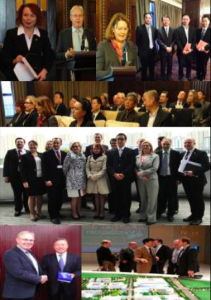
Visit of Ms. Krista Kiuru, Minister of Education and Science, to China in November
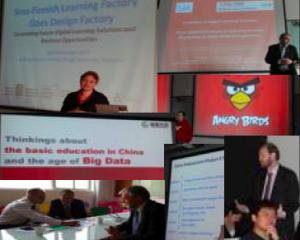
4th Sino-Finnish eBusiness Education and Research & Collaborative Innovation Forum 6-7 November 2013, Haikou, Hainan
In December 2013, the network covers many of the prominent services and e-business research institutions in China, and it also has active cooperation via its expert network with other key partners such as Tsinghua University and Tongji University. As Hainan is a nationally recognised tourism industry region in China a special summit during the Forum was organised by Hainan Normal University involving local industry on ubiquitous services and e-tourism. For example, a Sino- Finnish project is under planning for 2014 for developing cruise ship related technologies and services. The e-tourism area is also seen as a potential area of wider EU-cooperation, in particular as the European eBEREA partners include Italy (Trento) and the Netherlands (TU Delft). This preparation is, at the Finnish side, driven by University of Turku and Åbo Akademi.
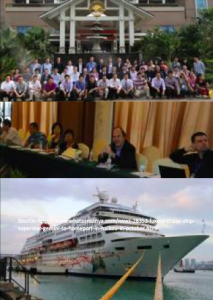
More Information on China-Finland ICT Alliance and DIGILE
For more information, please visit the China-Finland ICT Alliance website www.ictalliance.org, DIGILE website www.digile.fi or contact Mr. Matti Hämäläinen and Mr. Jani Kaarlejärvi (firstname.lastname(at)digile.fi).

China-Finland ICT Alliance Workshop Week in China
Oct 15 2013







China-Finland ICT Alliance Official Phase II Kick-off Forum, Shanghai
The China-Finland ICT Alliance Week gathered Finnish and Chinese partners representing recently completed, new projects and selected future initiatives. It also acted as a forum for several different business meetings and workshop sessions including cooperation in areas such as cloud services, big data applications, traffic services, geoservices and navigation, environmental monitoring technologies and solutions,elderly care and assisted living.
China-Finland ICT Alliance had its official Phase II kick-off forum in Shanghai on 24-26 September 2013. The main objective of the forum was to further develop new ways of international R&D&I cooperation, in particular between China and Finland. One of the key objectives was also to prepare new Finland-China initiatives in the jointly defined areas,such as digital services, aging care, urbanisation, smart traffic, environmental sensing and monitoring, and education, and other areas.
In the opening words the two official ICT Alliance coordinators, Prof. Honglin Hu of WICO and Prof. Matti Hämäläinen of DIGILE, highlighted the results of the completed work in future networking, future wireless, and future services that exceeded the initial expectations and built a good basis for moving forward in the launched Phase II projects. The work now continues in areas of joint interest, including energy efficient networking, development of future digital services based on cloud computing, big data, in particular when linked with sensing and novel IoT solutions, and applications in intelligent cities, environment, ageing society among other. The China-Finland ICT Alliance has now been developed to a potential model for creating an open international R&D&I cooperation platform for all.
Dr. Xing Jijun, Deputy Director General of China Science and Technology Exchange Center (CSTEC) from the Ministry of Science and Technology of China, and Chairman of the Advisory Board of the ICT Alliance set a new target to develop the Alliance actively towards international cooperation. R&D&I cooperation would benefit from even broader international partnerships. The Alliance platform has been played an important role in strengthening relationships between China and Finland, and this has become a very good showcase of a bilateral, win-win cooperation.
Ms. Marja Aspelund, Consul General of Finland in Shanghai, highlighted that China-Finland ICT Alliance has very well met its objectives in stimulating cooperation between China and Finland. This kind of cooperation is exactly what is needed. Through the launch of phase II projects the initial scope has extended and expectations are even higher. There is still a substantial unleashed potential in this cooperation, and students and university campuses represent a unique environment for creating and testing new solutions. This aspect is included the ICT Alliance’s next phase activities. Together China and Finland are well positioned for co-creating new innovative solutions and global breakthroughs, and Finland can also act as a “gateway” linking the EU and other international partners and markets together.
Mr. Jarmo E. Heinonen, Consul of Science and Technology & Head of TEKES Shanghai, reminded that TEKES has been active in funding China-focused R&D&I projects since the 1980s, and China will continue to be one of the key focus areas for TEKES. Through R&D&I cooperation it is possible to open up new business opportunities for both partners. TEKES played an important role in setting up the China-Finland ICT Alliance in 2009, and now in 2013 TEKES funded new joint ICT Alliance projects with more than M2€. Expectations on the industrial and academic impact of the Phase II projects are high.
Dr. Fusheng Zhu, Chief Engineer of ZTE Corporation, pointed out in his industrial keynote speech that 5G is one of the key topics when discussing R&D in future networks. China has taken a very active position towards developing and testing 5G. Development of 5G is such a potential area that it should be also put on the China-Finland-EU agenda.
Prof. Sasu Tarkoma, Academic Coordinator of DIGILE’s Internet of Things programme & University of Helsinki, presented DIGILE’s IoT programme and how it promotes the creation and growth of ecosystems that involve companies, universities, and individual contributors. It develops IoT platform technology, an IoT hub, for the concrete and rapid realisation of IoT deployments and ecosystems. An IoT hub is a backend system developed for certain type of IoT devices. The hub controls the devices and stores the data that they produce solving the problem of device and data ownership. Anyone can setup an IoT hub and thus their size can vary from small to very large deployments. The programme also develops an open API for IoT hubs so that data and access to sensors can be provided to third-party applications and other hub instances.
ICT Alliance New Initiatives and Partner Meetings Day was arranged to provide an opportunity to openly discuss, present and plan new initiatives in areas of joint interests and to meet with interested researchers and teams as well as companies.The day also provided an opportunity to become familiar with the Sino-Finnish Centre (SFC) in Shanghai, established for joint research, design, innovation, education and industry – university collaboration. It can also act as one local “platform” and forum for ICT Alliance activities in China.Many new initiatives were identified to be taken forward under the China-Finland ICT Alliance:
- 5G and new opportunities in Future Networks
- IoT Hubs connecting IoT deployments across space and time for opportunities in experimental research, innovation and business
- New open mobile and embedded platforms – open sw, open hw and open design
- Intelligent spaces (e.g. smart home, smart living, assisted living and solutions for elderly)
- Intelligent traffic and mobility of people in urban environments
- Geoservices and navigation
- Big Data and Cloud Services in China-Finland/EU cooperation
- Green Campus – monitoring of energy use, environment (e.g. air quality) and user behaviour.
As a result of the New Initiatives meeting in Shanghai, followed by meetings in Beijing at the end of the ICT Alliance Workshop Week, active thematic groups of Chinese and Finnish partners were formed to work on the development of joint R&D&I activities in the above topics.
These range from linking the now funded Phase II projects to new pilots in China and Finland (e.g. in traffic and services for mobility in urban areas, monitoring on energy and environment), to extend current and new Business Ecosystem programmes to involve Chinese pilots and R&D partners, and to prepare for large scale Finland/Nordic/EU – China proposals in cooperation with MOST and in cooperation with NSFC as well as working with MIIT in large scale new digital services area.
The Business Ecosystem programmes being currently prepared in the China-Finland ICT Alliance context include Elderly Care and Active Life (ECAL) and Open Mobile and Embedded Ecosystem (OMECO) coordinated by DIGILE in Finland. The large scale initiatives are planned to involve key EU partners and Finland as “a hub” and some to be established with China-Nordic cooperation as a starting point.


In the discussion it was also noted that for example Sweden and Germany and others have China-focused funding instruments set up and they have been successful in boosting cooperation. It was proposed that also Finland should have a foundation, “Finland-China Foundation”, that would focus especially on supporting and further developing Finland-China R&D cooperation.New initiatives and ecosystem programs DIGILE as the China-Finland ICT Alliance coordinator from the Finnish side, together with industrial and academic partners in China and in Finland, has jointly identified a number of areas as a basis for development of new initiatives, new research projects as well as the launch of business oriented ecosystem programmes to drive the creation of new breakthrough areas together.As an example, services for ageing society, including elderly care wellbeing and health, has been set as one of the priority areas for coming years. Population aging hits many Western and international societies and new health and aging related initiatives are currently being planned. DIGILE’s “Elderly Care and Active Life Ecosystem” (ECAL) will be the first Finnish international cross-SHOK ecosystem. It focuses on boosting business development between Finnish and Chinese companies, and it involves about ten actors at the initial stage – more to follow later. The fundamental objective is to take social innovations to market through co-creation and co-development.In the field of elderly care and wellbeing, it was recognised that following topics would require more actions. These same elements will also be highly relevant in other key areas of cooperation, such as urbanisation and environmental solutions:
- understanding Chinese culture, traditions, and expectations;
- involving training, regulation development and new business approaches and models leveraging the vast business opportunities;
- linking public, private and consumer perspectives, linking bottom-up and top-down activities;
- cities as key actors and decision-makers;
- stronger business cooperation; and
- bilateral funding instruments, aiming at developing solutions to jointly addressing the global markets
Other new initiatives include preparation of Open Mobile and Embedded Ecosystem in Finland-China cooperation. A workshop was organised at BUPT in Beijing on Open SW, Open HW and Open Innovation Platforms. Closely related to this “open innovation platforms” work is the development of new educational approaches involving university-industry cooperation in innovation and entrepreneurship and the development of scalable “Challenge” based approaches for that. A Letter on Collaboration was signed between China-Finland ICT Alliance / DIGILE and BUPT to promote cooperation in open SW and open SW and open design and to initiate discussions for inviting university and industry partners to join the OMECO Ecosystem as a key research and piloting partners in China.
A number of other areas are also actively developed as new joint initiatives and business-oriented R&D&I and business pilots. The Company Meeting involved discussions on cloud and big data service cooperation development in China and in Finland with companies such as Cloud Valley, Shanghai Guofuguangqi Cloud Computing as well as on geoservices with Wuhan based Geostar (WudaGeo).

More Information on China-Finland ICT Alliance and DIGILE
For more information, please visit the China-Finland ICT Alliance official website www.ictalliance.org, DIGILE website www.digile.fi or contact Dr. Matti Hämäläinen and Dr. Jani Kaarlejärvi (firstname.lastname@digile.fi).


Final OpenChina-ICT Conference – unique opportunity!
Sep 22 2013The OpenChina Final Conference will take place on November 5, 2013 in Vilnius at the Radisson Blu Hotel Lietuva, i.e. the day before the launch of the European Commission’s ICT 2013 Event.
The objectives of this Final Conference are to:
- Bring together policy and research stakeholders from Europe and China,
- Present the project final results,
- Promote EU-China ICT research cooperation and
- Provide recommendations for future cooperation programmes.
The tentative agenda is already available on the project website at http://openchina-ict.eu/project-events/final-conference/ featuring the participation of DG CONNECT, Chinese Ministries (MOST & MIIT), EU-China Expert groups, international EU-China projects and key ICT researchers.
Do not miss this unique opportunity on the occasion of the ICT 2013 event, and join us in Vilnius on 5 November to participate in this major event devoted to EU-China ICT research collaboration!
Register now (free of charge): http://store.sigma-orionis.com/login?conferenceid=73.
The OpenChina-ICT project, supported by the European Commission (DG Connect) through its FP7 research-funding programme, aims at significantly contributing to the facilitation of ICT related research cooperation between Europe and China. For further information, visit our website: www.openchina-ict.eu or contact us: info@openchina-ict.eu
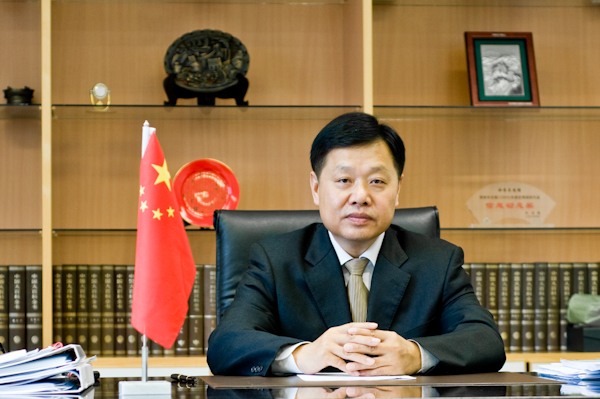
A statement from the Ambassador Mr. HUANG Xing
Jun 08 2012China – Finland ICT Alliance – a Strategic Partnership for the Future
H.E Ambassador, Mr. Huang Xing
20 May 2012/5/21
China and Finland enjoy a long history of fruitful cooperation in the field of science and technology, among which information and communication technologies (ICT) has been one of the most potential and successful areas at the national level in the past years. To further strengthen and deepen bilateral cooperation in the ICT field, China-Finland ICT Alliance was established in 2009. Its main objective is to facilitate R&D&I cooperation between our two countries in ICT and intelligent digital services. Joint ICT Alliance work was initiated in three areas of common interest: Future Wireless (Connection), Future Wireless Networking and Core Network, and Future (Ubiquitous) Services. These projects have already yielded substantial results, such as joint publications, patents and standardization proposals, and various activities, such as joint workshops and researcher exchange programs.
In the year of 2012, it is time to look forward again at the future and launch the next phase of ICT cooperation. The China-Finland ICT Alliance is now well positioned to serve as an open, scalable and sustainable platform for bilateral cooperation in ICT and digital services. By acting as a “gateway” in selected R&D&I areas, China-Finland ICT Alliance could also play a major role in facilitating China-EU and even worldwide cooperation in this field.
To highlight the “gateway” position, the 3rd European Summit on Future Internet, organized by TIVIT, the Finnish coordinator of the ICT Alliance, has a special focus on EU – China ICT cooperation. The close R&D&I link between China, Finland and the EU is essential for the future of both sides.
Finally, I would like to wish China-Finland ICT Alliance greater success and more tangible achievements in the future.
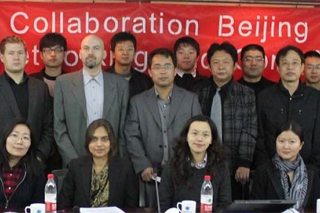
Future Wireless Networking and Core Network
Apr 09 2012The research projects and collaboration within the Future Wireless Networking and Core Network thematic area targets to create innovations and new solutions towards increased energy-, spectral – and cost-efficiency in future mobile communication networks. This includes e.g. development of new architectures of future mobile networks, interference management methods for future wireless networks, future green wireless communications, key technologies for future IPv6-based core network as well as testing and evaluation methodologies for future wireless networks.
The Energy and Cost Efficiency in Wireless Access (ECEWA) project is strategic Sino-Finnish collaboration initiative targeting to develop new cost and energy efficient solutions to future radio access networks. The use of emerging features such as femto cells, relays, and coordinated multipoint will require changes to the ways radio access networks are planned. Energy consumption of the network equipment has become increasingly important. The mobile network industry is looking ways to reduce the carbon dioxide emissions by improving the energy efficiency of the base station equipment. Energy efficiency of the networks will also impact on the way networks should be planned and operated. Saving energy also saves costs. Hence its natural and important to study the cost and energy efficiency jointly. The research is carried out in close cooperation with the participating Finnish and Chinese universities, research institutes and companies operating in the mobile devices and networks field to facilitate high-impact scientific work as well as societal impact through standardization contributions.
